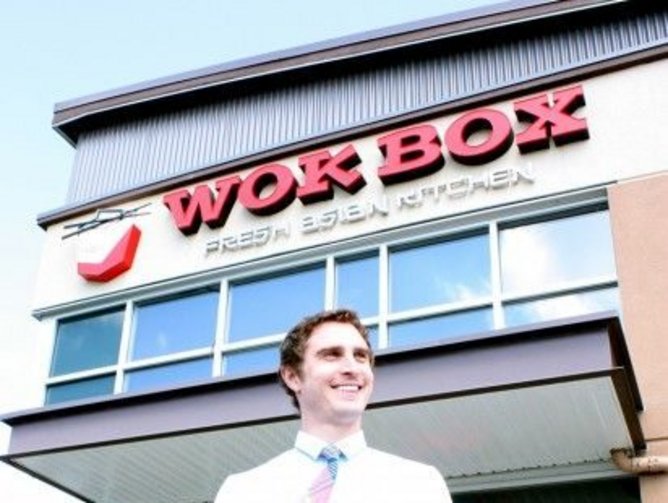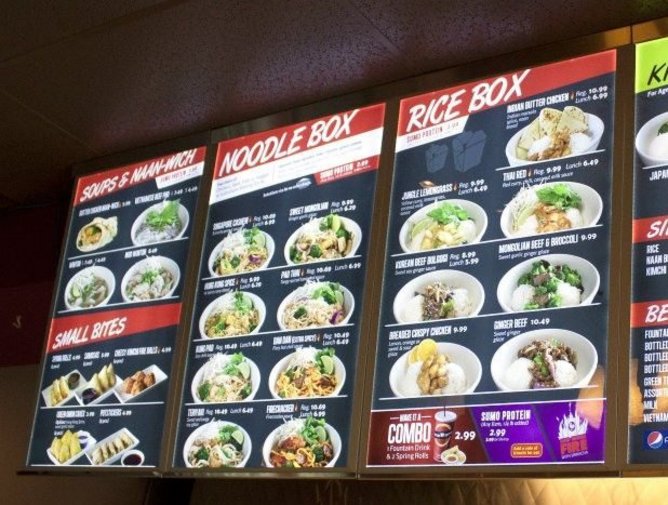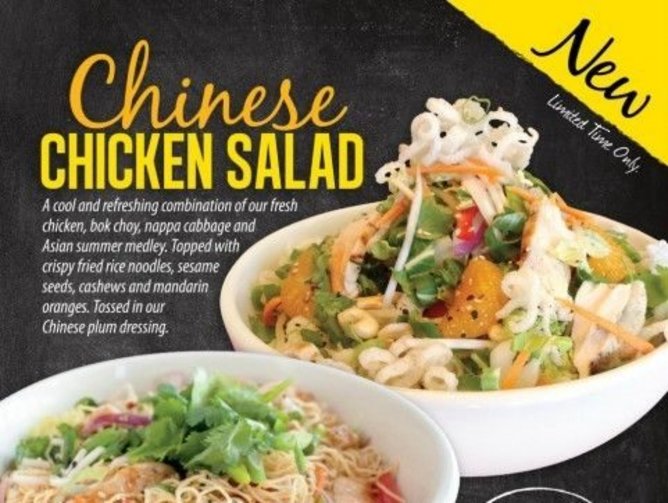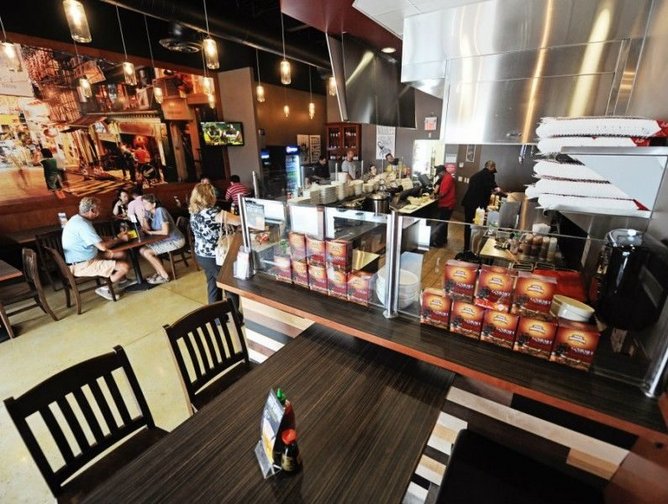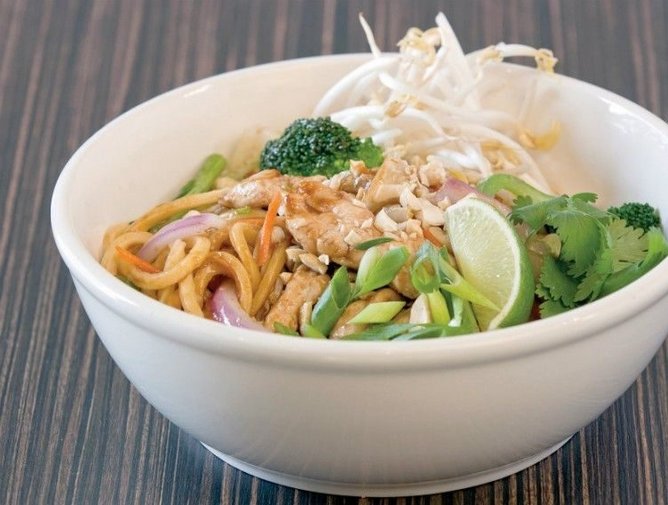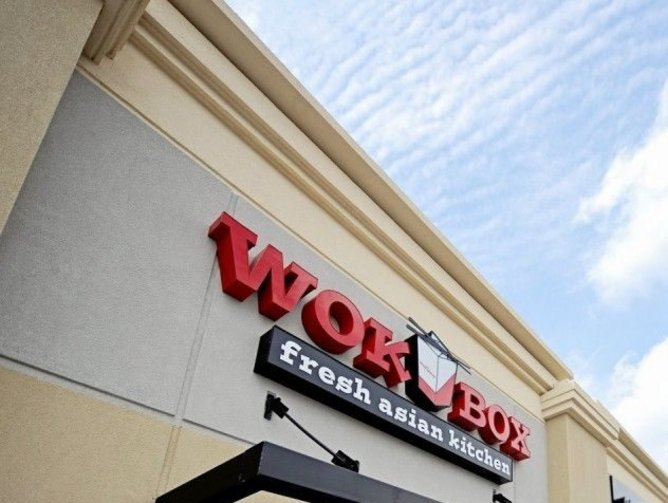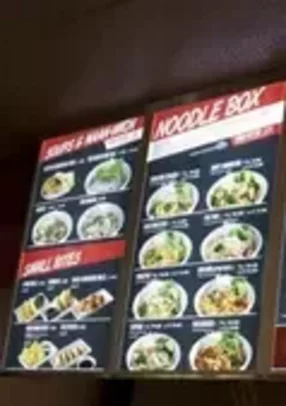
Wok Box Takes Fresh to a New Audience
Wok Box was founded in 2004, built on a concept of fresh, healthy, affordable and fun Pan-Asian cuisine. It’s a concept that the market needed, and Wok Box has responded to public demand with rapid growth—today the Edmonton-based franchise stands sixty locations strong. Now upon its tenth anniversary, the fast casual chain is ready to take that growth even further.
Branching Out into New Territories
Wok Box is not a franchise content to stay local—it’s intent on spreading its mission of fresh Asian cuisine far and wide, starting with spreading east into Ontario as well as crossing the border south into the United States.
“In the US, we think our product is able to fit in most major metropolitan markets,” says Eade, noting that the franchise is already in development stages in Arizona, Texas, Florida, and South Carolina with further deals in the works in various parts of the Midwest. “It’s just about finding the right partners.”
What does it mean to be the right partner? “With experienced multi-unit operators, we’re looking at how they run their restaurants,” says Eade. “Are they following the systems that they currently have? How do they track and grow their own performance on their own business model?”
Because Wok Box is an entry level franchise with a 300K capital point, it also attracts entry level franchisees who may not have a proven track record of franchise success to draw from yet. For these franchisees, it all comes down to personality.
“Owning your own business and your own restaurant is about tackling problems, mitigating issues, and following systems,” says Eade. "So the most important trait for us in seeing success once the doors have opened, is this: are they able to take the issues they’re been presented with and deal with them, or are they going to freeze and let things overtake them and overwhelm them? For people that haven’t had any business experience, the one trait we really look for is a can-do attitude.”
Consistency and the Challenges of a New Market
A major challenge for any franchised restaurant chain is maintaining consistent quality across all of your locations. Wok Box attributes much of its success in this area across its Canada locations to the strength of its supply chain and partnerships, boosted by focused tracking systems that help the company and individual franchises manage costs and supplies from location to location.
“We have a really strong Canadian established brand where everyone runs the same menu and products—so it’s just about partnering with really good vendors, whether it’s our sauce supplier or our noodle supplier or our broadline distributor Gordon Food Service,” says Eade. “They really help us get the product where we need it to go, and whenever there’s a hiccup or a hurdle to overcome, having that good partnership makes everyone jump to the bit when there’s something to solve.”
According to Eade, Wok Box’s growth into the United States has presented new challenges as the business endeavors to build a strong supply chain from scratch in this new territory. It’s a challenge that requires creativity and flexibility to overcome, making hyperlocal adjustments to fit the regional availability of ingredients and supplies, but this kind of flexibility plays perfectly into Wok Box’s strengths.
“That’s the beautiful thing about our brand,” Eade explains. “All our stores in [a market] run the same menu, but if [another market] has a slightly different menu, customers aren’t going to care because our commitment to our customer is providing high quality great Asian food. If there’s a slightly variant menu in different markets, that’s totally fine because customers know that the quality is going to be there.”
Social Media and the Power of Localization
As Wok Box grows its presence in new markets, creating a strong social media strategy is more important than ever before. But the social media landscape is changing, and an effective strategy has to be ready to change along with it.
“Five years ago, having a website and pushing everyone to the same Facebook page whether they’re in South Florida or Seattle was what you needed to do—but now people are only interested in what’s going on in their own market, whether it’s a new business owner looking for new businesses or a customer looking for new food,” Eade explains. “With what social media is doing, our strategy with social media is hyperlocalized content. That could be telling our consumers in South Florida: we have a new product coming out, or a new store opening in greater Ft Lauderdale so here’s some information about that. Or it could be reaching out to Detroit area franchisees of other systems, asking: have you considered adding to your portfolio? It’s really about tailoring the content to those local people whether it’s through Facebook or Twitter, Instagram or even Yelp.”
When Trends are The Norm
In the franchising industry, trends come and go. But many recent trends sweeping the industry are just business as usual at Wok Box. Set apart by its fresh menu and fun youthful branding, Wok Box doesn’t follow trends—it sets them.
“Last year Subway made a huge splash with sriracha, and that was a massive trend—well, we’ve been using sriracha since day one since it’s a staple of Asian food,” notes Eade. “There are some things we do where they’re trends, but they’re just a part of our core menu. We’ve had gluten free dishes from day one, plus GMO free, steroid free chicken, and steroid free beef. These are big healthy ‘know what you’re eating’ trends in our industry, and we kind of take those for granted, because that’s what our brand is. It’s about providing really high quality freshly prepared delicious Asian products. In doing that, we’re kind of meeting those trends anyway.
“We’re all young guys in the restaurant industry, and we’ve got fun thoughts and our fingers on the pulse,” he adds. “I think that’s what sets us apart."
